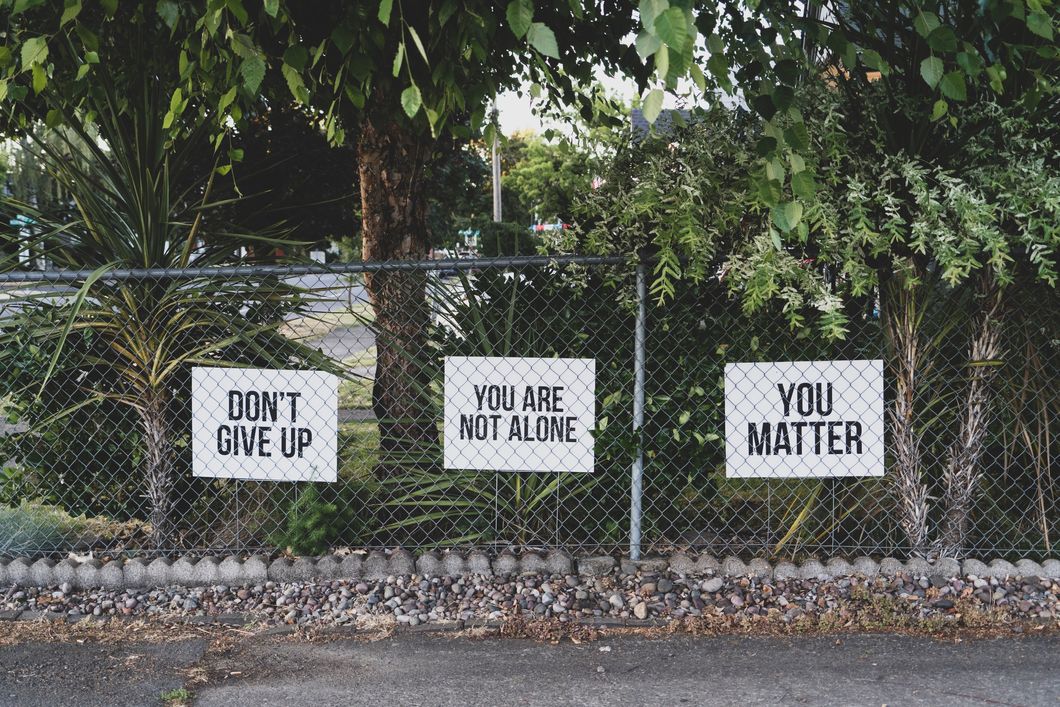The first time I saw a therapist, I was thirteen years old. That seems young to a lot of people, perhaps too young, despite how many children and teens are seeking out therapy in current times.
I felt too young at the time. My parents did not feel that way — the issues I was undergoing were too large for a thirteen-year-old and too large for them. I did not have a choice in the matter.
Sitting in that little room with tired eyes and a fuzzy brain, I knew I was out of place. My leg kept anxiously bouncing up and down while my heart threatened to beat out of my chest. It was me in a plush leather chair adjacent to a middle-aged social worker on a navy couch. Somewhere outside, my mother pretended to scour through a magazine while waiting for us to finish.
Nothing about it made sense. Therapy was not for me. How could it be?
Picking up on this feeling, my therapist told me this: "Therapy is for everyone. It does not matter if you have a mental disorder, depression, trauma, whatever else. Everyone could use the neutral party of a therapist to help them cope with life."
Somehow, this struck a chord with me. Her words wrapped themselves around my mind as if trying to give me a hug. They made me feel normal again like I was not some alien who needed to be repaired. In my own head, I was isolated from my peers and the rest of society simply by being too depressed and anxious to leave my house.
If therapy could be useful to anyone, anywhere, it was not going to hurt to stick around to see if I could benefit from it despite my middle-school wariness.
I have been vastly open about my mental health for years now. Depression and anxiety are no strangers to me, nor are they for a rather significant amount of the general population. More and more people are seeking out therapy to treat these issues in spite of a still pervasive stigma around mental health.
Here is a statistic for you: nearly half of all Americans (42%) see a counselor at some point in their lives.
That means almost 1 in 2 people, and at the very least, 1 in 3. We all know more than three people. We know and love someone who has been to therapy, whether for grief, marriage, depression, or something even more taboo. So why are some of us still assuming this means someone is "crazy" or abnormal" for seeking out psychotherapy? Why do some of us still insist that therapy is for people who are not "strong enough"?
Therapy saved my life, and it saved many others, too. Going when I was young ultimately saved me years of heartache and a stunt in my emotional, academic, and personal growth. I have coping mechanisms now - I have a little therapist voice in the back of my head insisting that yes, I am good enough. Yes, I will get through this again just as I have in the past. Yes, those negative thoughts I have are just thoughts and never, ever facts.
Psychotherapy is not just for those of us with depression, anxiety, eating disorders, etc. It is for those of us without a place to tell our thoughts and those of us struggling with a negative self-image. It is for those of us going through a breakup, the death of a loved one, school changes, any fear of the unknown.
Therapy is for everyone who needs someone or something to allow them to pull through their fears or sadness.
Seeking out therapy in your darkest hours is not a sign of weakness. It is a sign of the will to live, and we are unbelievably proud of you for that.

















